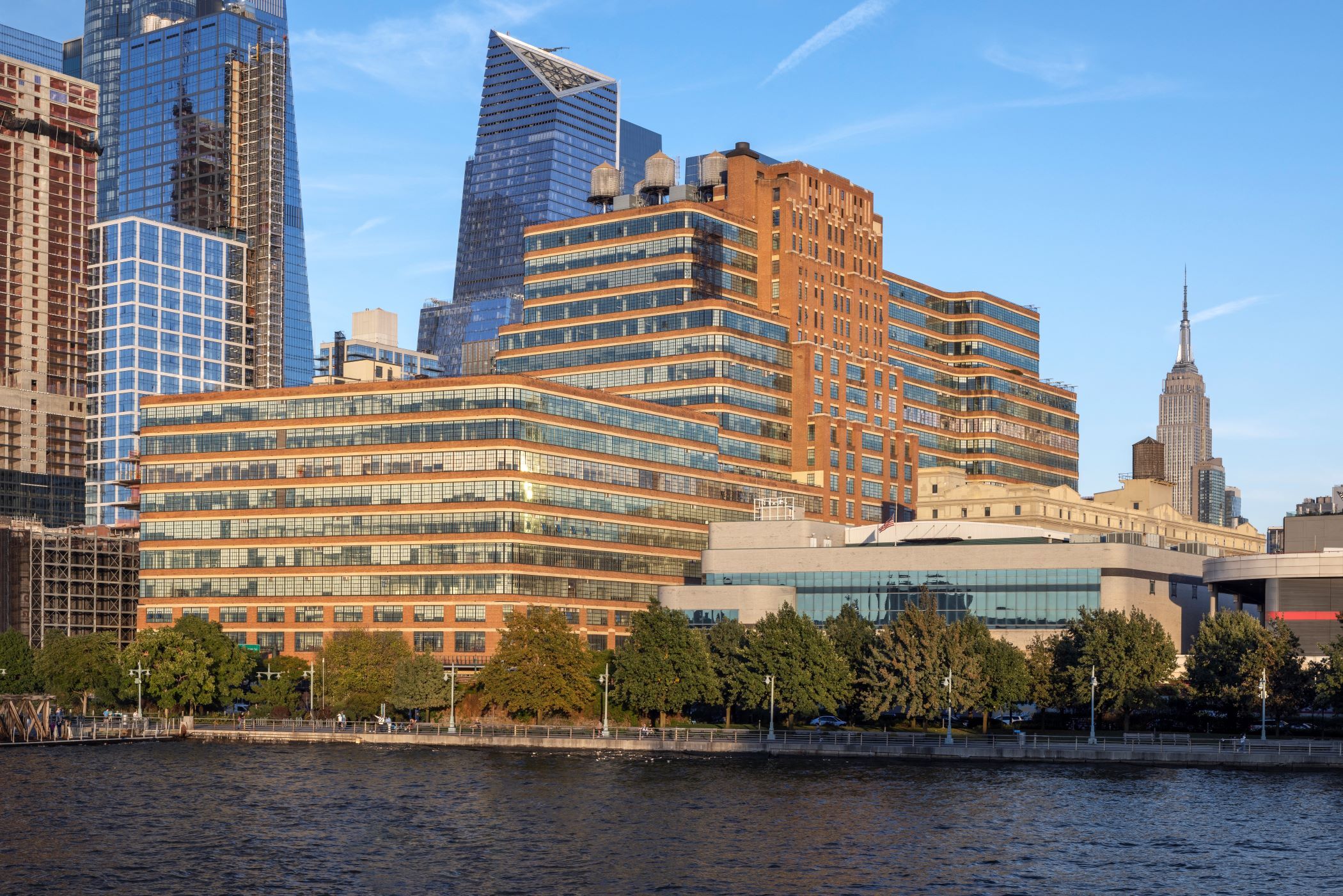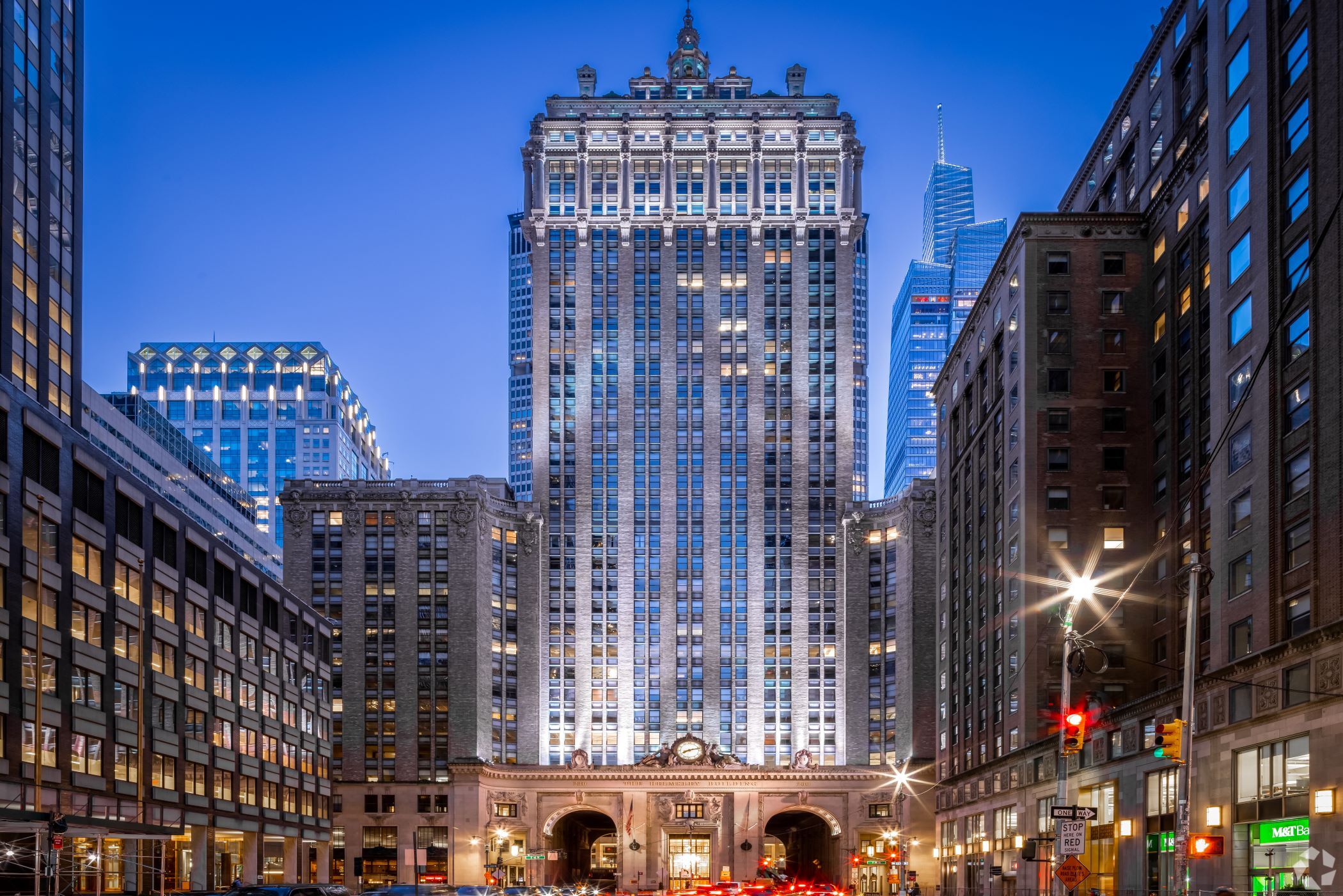To Scott Rechler, chairman and chief executive of New York-based real estate developer RXR Realty, dramatic industry changes over the past year remind him of the course his life took in 1989 after being accepted to George Washington University’s law school.
He gave a tuition deposit check back to his mother, who had always wanted him to become a lawyer.
“I decided not to go,” Rechler said in an interview from his office at 75 Rockefeller Plaza, a tower his company owns that’s part of the iconic Rockefeller Center complex in the heart of Manhattan. “And the reason being, I realized that it was this pivotal time in the real estate industry, that the world was going to be turning upside down a little bit like it has been the last year. … We were coming off the savings and loan crisis."
He concluded that if he "went to law school, I wouldn't be having a front-row seat to watch that transformation take place.”
Instead, Rechler later earned a master’s degree from the New York University Schack Institute of Real Estate. He’s been in the front row of the industry ever since.
Today he controls a firm with a combined asset value of about $19 billion. With the commercial property market upended by higher borrowing costs, among other factors, the third-generation real estate mogul is seeing investment opportunities — part of an "eyes wide open" approach he mentioned this week in an interview on CNBC — including in top-tier office buildings that may be in financial distress. Like other real estate CEOs, he's looking for the best ways to manage debt on some properties at a time of high interest rates.
And he thinks big. RXR plans to co-develop 175 Park Avenue in New York, a project billed as a nearly 1,600-foot-tall tower with the highest occupied office floor and highest hotel in the Western Hemisphere.
Early Success
Rechler, 56, learned the ins and outs of real estate growing up and eventually took over the real estate business his grandfather, father and uncle founded in Uniondale, New York, in 1968. At Reckson Associates, he was the architect behind taking the company public in 1995 at age 26 and, in 2007, selling to SL Green Realty, Manhattan’s largest office landlord, for over $6 billion. That deal yielded a 700% return for Reckson’s investors. The next day, he and his partners founded RXR.
A respected money manager once told Fortune magazine Reckson was the “best run” real estate investment trust for its strategy of buying distressed buildings, fixing them up, and getting an “increase in revenue because of the improvements.” Under Rechler, the firm took a controlling interest in student housing giant American Campus Communities in 1998. It went public in 2004. Blackstone, the world’s largest commercial property owner, in 2022 bought ACC for nearly $13 billion.

At RXR — not unlike the approach at Reckson — Rechler has employed a playbook of capitalizing on what he describes as market dislocation and investing in office and other properties that can be spruced up for higher returns.
In the wake of the Great Recession disruption, RXR bought some $4.5 billion of Manhattan office properties between 2009 and 2011, including the 2.3 million-square-foot Starrett-Lehigh Building in Manhattan’s Chelsea neighborhood.
The firm began an overhaul to add amenities including a food hall, a gym and an outdoor terrace, and sold a 49% stake of the property in 2015 to Blackstone. Its investors got all their capital returned while RXR kept a 51% stake. Designer label Ralph Lauren recently renewed a lease for 250,000 square feet there, CoStar data shows.
In another example, 75 Rockefeller, purchased in 2013, also has been renovated. When the property landed a $260 million loan in 2022, a time when financing was challenging for the hard-hit office sector, a Newmark broker called it “the epitome of what lenders require in today’s capital markets.”
As the Federal Reserve has signaled it has most likely ended its string of rate hikes that have curtailed deal activity, Rechler, who is a board member of the Federal Reserve Bank of New York, sees investment opportunities.
Distressed Office Properties
RXR, with an office portfolio that includes such properties as the Helmsley Building directly connected to Grand Central Terminal, recently said it’s partnering with Los Angeles-based Ares Management on a joint venture to invest $500 million initially on buying New York’s distressed office properties, a real estate type they say is now ripe for a comeback.

Last year, commercial real estate investors were “sort of getting their head around new values and understanding a new landscape,” Rechler said. “I would expect 2024 to be a year where more of those transactions are happening.”
Rechler said property values need to reflect the reality of what's going on in the market. With lower prices, it would make sense for investors to buy or put money in properties for upgrades, for instance.
“In 2008, because interest rates were so low, values were able to bounce back," he said. "The values aren't going to be bouncing back. So you've got to use this moment if you're going to invest in a building to really right-size the debt level and your expectation for what the value is today.”
RXR is also exploring ways to further capitalize on the market’s lack of liquidity as a lender. Other real estate firms including Blackstone have touted credit lending as a key growth avenue. The investment giant recently said real estate values are reaching a bottom as inflation has slowed and the Fed is expected to cut rates this year.
“It's a very compelling time to be a lender, particularly if you're able to underwrite the real estate from a real estate owner and operator's perspective, because you can understand that risk from that standpoint,” Rechler said. “There are very few lenders out there right now, much fewer than there had been historically.”
As the pandemic has rewritten how Americans work, Rechler said New York has “resolved itself to a hybrid model” of employees generally working three or four days a week in the office.
Between Tuesday and Thursday, RXR, with its own policy requiring workers in the office four days a week, has seen its office utilization rate return to the pre-pandemic level of about 80% to 90%, he said. He pointed to a recent Ernst & Young study that found fully remote work declined to 1% of the U.S. workforce in 2023 from some 34% in 2022. “When you are in the office three or four days a week, from an office standpoint, it doesn’t really change how much space someone’s going to lease,” he said.
Pandemic Disruption
To be clear, RXR isn’t immune from the fallout of the pandemic and tenants seeking new or renovated properties with desirable amenities. RXR in 2022 began what it called “Project Kodak” to identify buildings that are either “film,” often older stock not well located or lacking amenities, versus “digital,” which have those qualities.
The conclusion: 10% of its portfolio lands in the film category, and in some cases that's ultimately led to talks with lenders about restructuring debt.
Both RXR's 61 Broadway in Manhattan’s Financial District as well as the Helmsley Building, an asset that RXR puts in the lower end of digital category, have run into mortgage issues. Rechler sees the potential to convert both buildings into mixed-use properties with office and residential.
“We were looking at just the physical and competitive nature" of a building when it comes to Project Kodak, he said. “If it's digital, with a good capital structure, that's good. If it's digital ... [and] it's overly leveraged, we have to deal with that, too. So even [with] digital buildings, that doesn't mean you're not going to work with the lender to right-size the debt.”
RXR manages some 93 commercial real estate properties and investments with over 10,000 residential units.
They are not just in the greater New York area. RXR in 2020 expanded its multifamily ventures nationwide to cities including Phoenix; Denver; Apex, North Carolina; and Tampa, Florida.
Meanwhile, suburban downtowns outside what Rechler calls “superstar cities” such as New York are also a big focus. Through public-private partnerships, RXR is the master developer of luxury multifamily properties in such markets as New York City suburbs of New Rochelle and White Plains.

It's “about an interconnected superstar region,” he said. “The rents are 50% to 30% cheaper than Manhattan,” and the apartments are 30 minutes away from midtown.
Transit-oriented developments in suburban downtowns are important because no matter how much housing is built in major cities such as New York, the cost of living will still remain much higher in comparison, he said.
Rechler’s not fazed by concerns about the multifamily sector slowing with a wave of supply coming online nationwide, particularly in the Sun Belt region.
“There's still such a fundamental shortage of high-quality rental housing and housing in general," he said. "Come end of 2025, beginning of ‘26, there's going to be a very strong market again, particularly, because construction is dropping dramatically. Also because there's no construction financing. So you have even less supply. So that's why we're actively investing in that space and prepared to assume that rents go down for the next couple of years, but then shoot back up.”
Outside of office and residential, RXR also has logistics among other properties and is also part of a consortium that’s developing John F. Kennedy International Airport’s Terminal 6. The airport is managed by the Port Authority of New York and New Jersey, where Rechler once served as vice chairman among his various civic engagements.
